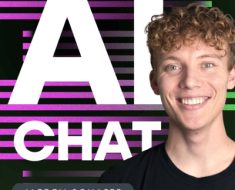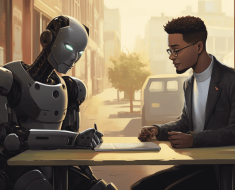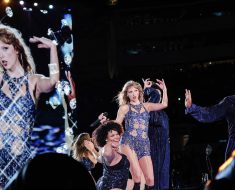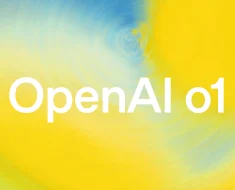
Before OpenAI, artificial intelligence was really all just theory and niche applications. Sure, you’ll hear it in the news from time to time. Deep Blue beating Kasparov. IBM Watson beating Ken Jennings. But none have had the same impact as ChatGPT & OpenAI.
While there are many people responsible for that, there’s one person that stands out as OpenAI’s most important asset. Nobody has ever put theory into practice when it comes to AI and deep learning better than Ilya Sutskever.
So who is he? Here’s everything you need to know — from his childhood, his university years, his friendship with Geoffrey Hinton, his time at Google, founding OpenAI, and his work into Superalignment.
The Early Years of Sutskever
Little is known about Ilya Sutskever’s childhood except for the cliff notes. He was born in Nizhny Novgorod, Russia when it was still a part of the Soviet Union. When he was five, his family moved to Jerusalem where he continued his studies. In 2002, he transferred to the University of Toronto with a bachelor’s degree in Mathematics.
Sutskever was, by all means, an intelligent young adult. But, at this point, he was completely unremarkable. Many have the same credentials as him, the same interests, same values. His moment in history — the one that would solidify him as one of the best minds in deep learning — came in 2012.
What is AlexNet?
Geoffrey Hinton — Sutskever’s mentor in Toronto and one of the so-called “Godfathers of Deep Learning” — and Alex Krizhevsky, a computer scientist who was pursuing his doctorate at the time, developed a convolutional neural network (CNN) model called AlexNet.
Now, if that sounded like a lot of mumbo jumbo, I completely understand. Essentially, AlexNet is a multi-layered model made for image classification and object detection. It’s relevant because of three reasons:
- Innovation. AlexNet was one of the first deep neural networks to demonstrate the power of deep learning in image-related tasks.
- Performance. It outperformed traditional methods at the time, reducing the error rate on the ImageNet dataset by a large margin.
- Influence. Its success influenced the design of subsequent neural network architectures, which set a foundation for modern models.
The success of AlexNet led to both Krizhevsky and Sutskever being recruited by Google. Both of them committed, but the latter’s time in the company would soon prove to be limited.
The OpenAI Journey
Sutskever’s work at Google, along with his contributions to AlexNet, was enough to put him on the radar of Sam Altman and Elon Musk when they were recruiting people for OpenAI. Yoshua Bengio, one of the other “Godfathers of Deep Learning,” even told Altman that he was unlikely to find a better lead scientist than Sutskever.
Under Sutskever’s leadership, OpenAI was able to launch GPT and all its versions, DALL-E, and Codex. Before publicly announcing ChatGPT, he was reportedly uncertain of its public reception because of AI hallucinations. Needless to say, he was worried for nothing.
Because of his reputation, there were whispers that Sutskever was the Wozniak to Altman’s Jobs — that he was the man behind everything. Whether or not this is true, you should keep this in mind because it will become really, really relevant later.
Other Notable Contributions and Awards
Achievements
- Attention-Based Deep Learning. During his Google Brain years, Sutskever, along with Oriol Vinyals and Quoc Viet Le, revolutionized natural language processing by enabling machines to efficiently translate text from one language to another with attention.
- Deep Reinforcement Learning. Combined deep learning with reinforcement learning for better decision-making of AI in robotics and gaming.
- AlphaGo. One of the major contributors to the AI system that beat the world’s best Go players.
- TensorFlow. Actively involved in the development of TensorFlow, a widely used open-source software library for building and deploying machine learning models. Today, TensorFlow is one of the most accessible machine learning tools for students and professionals alike.
Recognition
- 2012: Google Graduate Fellowship
- 2014: Named “Innovator of the Year” at the University of Toronto.
- 2015: Named in MIT Technology Review’s 35 Innovators Under 35.
- 2022: Elected a Fellow of the Royal Society (FRS).
What Sutskever Thinks of AI and Its Future?
Earlier this year, Geoffrey Hinton (who I mentioned earlier as Sutskever’s close friend and mentor) quit his job at Google because of his fear of what it would become. He particularly cites two reasons: one, because he’s seen the way bad actors abuse AI, and; two, because he’s seen GPT-4 and realized that these machines are smarter than he thought they’d be.
Why am I mentioning this? Well, it’s important background information because there’s a lot of parallels between these two men.
In an interview with MIT Technology Review, Sutskever reveals that he thinks ChatGPT is already “a little conscious.” In the same interview, he also said that he shares the same worries as Hinton. In fact, him, Altman, and Brockman co-authored a paper on AI governance which outlines the following conditions before making a superintelligence:
- There must be coordination in the development of such technology to ensure smooth adoption and integration to the society.
- There must be a regulatory board that can act as the highest level of authority in AI.
- We must be technically capable of ensuring that this intelligence will be safe.
Two months after that paper, Ilya announced that he was leading OpenAI’s research into controlling superintelligence, which they call Superalignment. The goal of this is to come up with a set of fail-safe procedures for building and controlling the upcoming superintelligence technology.
The Drama Around Sam Altman Getting Fired
So, let’s talk about the elephant in the room.
What’s happening behind the scenes in OpenAI? Did Ilya really betray Sam Altman?
To fully understand what’s been happening, let’s first make a timeline of events:
- November 6th: Altman delivers the keynote speech during OpenAI’s DevDay, where he introduced new technologies coming to the ChatGPT platform.
- November 17th: OpenAI announces that they’re not moving forward with Altman as CEO.
- November 17th: Brockman, one of OpenAI’s co-founder, and three other senior engineers (including Jakub Pachocki, one of the largest contributors to GPT-4) resigned in solidarity with OpenAI.
- November 18th: OpenAI discusses possible return of Altman as CEO.
- November 20th: Discussions failed. Emmett Shear, most known as Twitch’s co-founder, is named third OpenAI CEO.
Here’s the thing: Nobody, except for the OpenAI board, actually knows why Altman was let go. Rumors were going around about a hostile takeover and the name that’s been mentioned over and over is Ilya Sutskever.
There were six people on OpenAI’s board of directors: three employees (Altman, Brockman, Sutskever) and three non-employees. All three non-employees voted unanimously for the ouster of Altman but they needed one more vote to pass. So, they got Sutskever’s vote. Both Altman and Brockman were even informed of the former’s firing by Sutskever himself.
So, why would he do this?
All we could do now is speculate but, given that Sutskever’s biggest advocacy is AI safety, we could safely assume that it’s somehow related to that concern. With Altman going to Japan and the Middle East for funding, Sutskever and the other members of the board might have been worried of how aggressive Altman has become in staying ahead of the curve.
In A Nutshell
So, who is Ilya Sutskever?
I’d say the best way to define him is “a visionary with a leash.” And, mind you, he’s not being held back by anybody but himself. That’s what makes him extraordinary.
He believes equally in the power of AI to empower and destroy our society. He’s prepared to use a significant amount of OpenAI’s resources just to create safeguards against a possible superintelligence, something that doesn’t even exist yet.
Was he right in voting against Altman? I guess, time will tell. But right now, as AI takes center stage, Sutskever is undoubtedly one of the most important figures in the AI world, and someone who I know can lead us into a peaceful future where AI and people can coexist.





